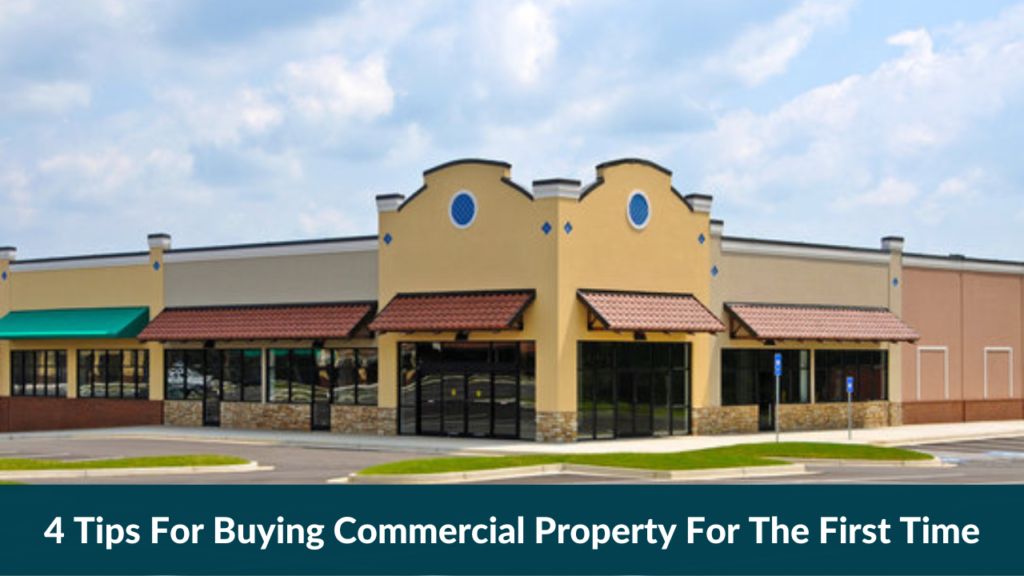Commercial real estate is at the top of many people’s wish lists, and for a good reason: It has repeatedly been shown to be a successful investment. But, what to consider when buying commercial property for the first time?
If you make the correct investment, you may have a valuable asset that you can rent out to generate a reliable monthly income. However, due to their high startup costs, commercial real estate investments are not suitable for everyone. To ensure you receive the greatest pricing and prevent problems in the future, you must also conduct extensive research and exercise due diligence.
The good news is that you can succeed immediately if you follow excellent procedures and get professional assistance. The procedure might seem difficult and drawn out if you’re a first-time buyer. With these pointers, you can purchase your first commercial real estate more easily.
Tips For Buying Commercial Property For First Time
1. Pick a Fantastic Location
For buying commercial property the location of is most important factor. You want to invest in a building that will attract a lot of tenants and is in a price range you can afford. If money is tight, perform extensive research to identify the states and counties with the most affordable commercial real estate. You should choose a location that will draw tenants as well.
Find out whether there are any planned developments for the area in the future. Does a high street location you’re considering lose value if a mall is built off-plan?
Investigate the property’s proximity to nearby social facilities, such as hospitals, shopping malls, and schools, to ensure that you will need it in the future.
2. Hire a Group Of Reputable Experts
A seasoned investor might have the guts to handle some aspects of buying real estate, but first-time buyers shouldn’t start alone. It is vital to have a group of dependable experts by your side. In this manner, the procedure goes smoothly and ultimately saves you time and money. The following are some experts you might want to think about hiring:
- Realtors – Real estate professionals, often known as realtors, are knowledgeable about the housing market and even your community. They will support you in finding the property of your dreams and negotiating a fair price.
- Attorney – Real estate lawyers are familiar with the market for commercial real estate. They’ll aid you in comprehending relevant legal requirements, safeguard your interests throughout talks, and guarantee the contract’s legitimacy.
- Appraiser – It is a good idea to appraise the property before buying. An appraiser will inform you of the property’s value and help you avoid overpaying. Your lender will employ the appraiser if you’re getting a mortgage, but you’ll still be responsible for paying the appraiser’s cost.
- Insurance Agent – Your insurance requirements, such as those for commercial property insurance and mortgage life insurance, might be assisted by an insurance broker or agent. This insurance covers damage to the property brought on by specified risks, including storms, fires, and vandalism.
3. Analyze a Variety Of Commercial Properties
Before choosing the ideal commercial property, it becomes sensitive to look around. State, location, neighborhood, and local market all affect the cost of real estate. Make sure you’re not overpaying for a property you may acquire elsewhere at a reasonable price by doing your research thoroughly. Make a list of the homes that meet your search criteria, then choose the best one.
Schedule tours to visit the commercial properties you are considering and run pricing comparisons. Additionally, it would help if you inquired about the area, previous occupants, property taxes, upcoming construction, zoning, and repair and remodeling costs.
4. Absolute Diligence
When investing in commercial real estate, doing your homework is essential. This entails fact-checking and assessing the property’s state.
Before making the purchase, you should:
- Assess the area, the housing market, and the various properties.
- Evaluation of the property’s condition
Due diligence will reveal any title, debt, easement, encumbrance, or restriction problems that could impact the property or its development. Possible limitations could be connected to zoning, environment, compliance with the law, or licensing.
CONCLUSION
Investing in medical real estate has shown to be successful. But because the market is so complicated, failing to do your homework before investing can cost you money. You’ll not only find the ideal property at the ideal price by using these suggestions, but you’ll also have a simple buying process.

